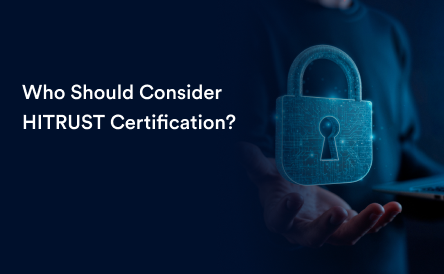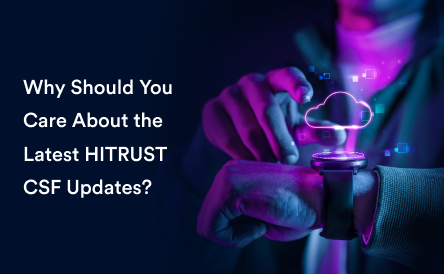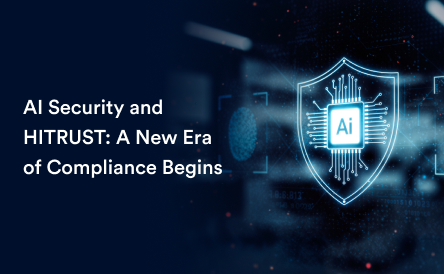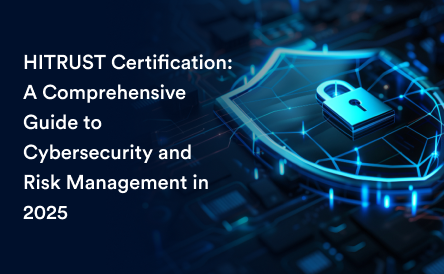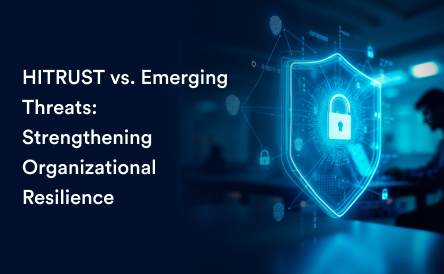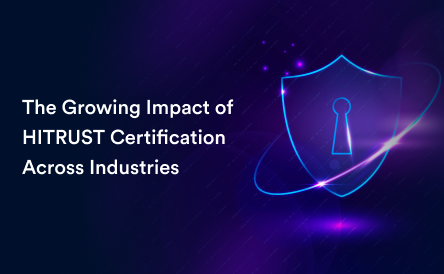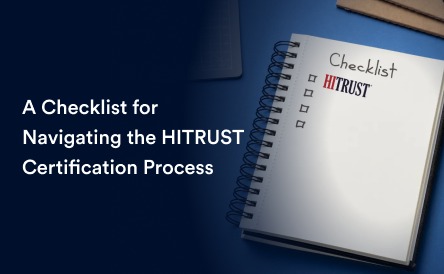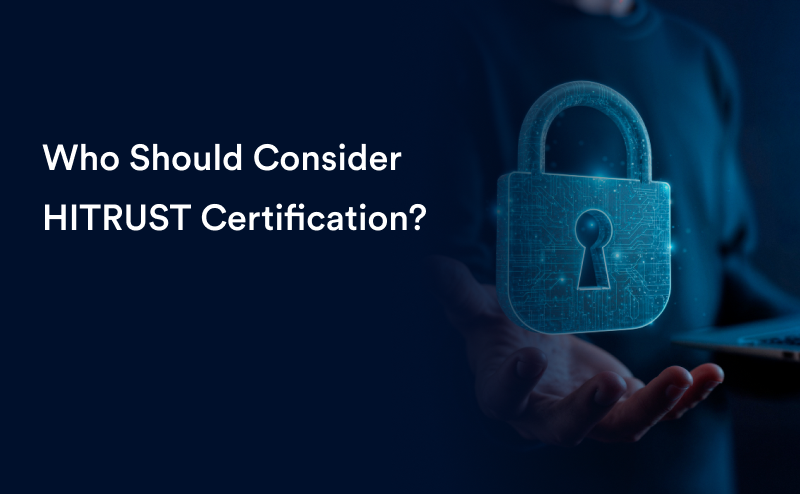
In today’s business environment, protecting sensitive information has become a priority for organizations across various sectors. Whether you’re in healthcare, finance, technology, or any other industry handling confidential data, ensuring that you meet stringent security and privacy requirements is not just a necessity — it’s a competitive advantage. One of the most comprehensive frameworks for managing data security and compliance is the HITRUST Common Security Framework (CSF).
The HITRUST CSF is a certifiable and scalable approach to managing compliance and security. It integrates several regulatory standards, including HIPAA, NIST, and ISO, providing organizations with a unified way to demonstrate their commitment to protecting sensitive information. But the question remains: Who should consider pursuing HITRUST certification?
This article discusses the industries, types of businesses, and specific situations where HITRUST certification is highly beneficial.
Organizations in the Healthcare Industry
HITRUST certification was initially developed for the healthcare sector and remains the gold standard for organizations that handle Protected Health Information (PHI). While HIPAA compliance is mandatory, achieving HITRUST certification elevates security efforts to the next level.
1. Healthcare Providers
Hospitals, clinics, and other healthcare providers handle large volumes of sensitive patient data. Achieving HITRUST certification helps these organizations demonstrate their commitment to safeguarding PHI and ensures compliance with HIPAA and other relevant regulations. It also provides a competitive advantage when forming partnerships with other healthcare entities or insurers.
2. Business Associates
Any organization that handles PHI on behalf of a healthcare provider, such as IT vendors, cloud service providers, or billing and claims processors, is considered a “business associate” under HIPAA. HITRUST certification is highly recommended for these organizations to prove that they meet HIPAA’s stringent requirements for security and privacy. By achieving HITRUST certification, business associates can build trust with their healthcare clients and demonstrate their capability to secure sensitive health information compliantly.
Cloud Service Providers and Technology Vendors
Organizations providing cloud-based solutions or technology services to industries dealing with sensitive data — such as healthcare, finance, or insurance — should strongly consider HITRUST certification. Data stored in the cloud or processed by third-party vendors is often at a higher risk for breaches, making it essential to prove robust security measures are in place.
1. Cloud Service Providers (CSPs)
CSPs serving the healthcare industry or any regulated sector should achieve HITRUST certification to prove that their infrastructure and services meet stringent data protection standards. This is particularly important given the rise in cyberattacks targeting cloud environments.
2. SaaS Providers
Software as a Service (SaaS) providers that manage or process sensitive customer data can benefit from HITRUST certification. With increasing regulations around data privacy (e.g., GDPR, CCPA), being HITRUST certified shows that SaaS providers are committed to keeping their clients’ data secure. It also simplifies meeting different regulatory frameworks by using a unified security framework like HITRUST.
Financial Institutions
While HITRUST certification was initially designed for healthcare, it has expanded to cover a range of industries, including finance. Financial institutions handle highly sensitive data, such as Personally Identifiable Information (PII), financial records, and transaction histories, making robust security measures essential. HITRUST certification helps financial organizations demonstrate compliance with various security regulations, including PCI DSS, GLBA, and SOX.
1. Banks and Credit Unions
Banks, credit unions, and other financial services organizations should consider HITRUST certification as part of their broader data protection strategy. With evolving cyber threats and a complex regulatory environment, HITRUST offers a way to align with multiple standards in a structured manner.
2. Payment Processors
Organizations that process financial transactions, such as payment processors or third-party payment gateways, should also consider HITRUST certification. By achieving HITRUST, these companies can demonstrate adherence to rigorous security controls, protecting their clients and reducing the risk of data breaches and fraud.
Organizations Seeking a Competitive Advantage
In today’s marketplace, security and trust are paramount. Many organizations choose HITRUST certification to differentiate themselves from competitors and build trust with customers and partners.
1. Third-Party Vendors and Service Providers
For service providers and vendors in industries like healthcare, finance, or technology, obtaining HITRUST certification can offer a significant competitive advantage. Many companies, especially in regulated industries, now require their vendors to be HITRUST certified as a prerequisite for doing business. Certification shows potential clients that your security practices meet or exceed industry standards, making your services more attractive.
2. Startups and Small Businesses
Even smaller companies, such as tech startups handling sensitive information, should consider HITRUST certification. Startups that prioritize data security from the beginning can use HITRUST certification as a key selling point when attracting new clients or investors. For small businesses, achieving HITRUST can also help reduce the regulatory burden by consolidating multiple compliance requirements into a single framework.
Organizations Subject to Multiple Regulatory Requirements
One of the main reasons organizations pursue HITRUST certification is its ability to unify and streamline compliance across multiple regulatory frameworks. The HITRUST CSF integrates various industry standards and regulations, including HIPAA, GDPR, NIST, PCI DSS, and ISO 27001. This is especially valuable for organizations operating in multiple sectors or subject to overlapping regulatory requirements.
1. Global Enterprises
For organizations with a global footprint, managing compliance with numerous national and international standards can be complex and resource intensive. HITRUST certification provides a consolidated approach, helping global enterprises meet a variety of regulatory standards while ensuring data protection and privacy.
2. Organizations Subject to GDPR or CCPA
While HITRUST is widely known for its alignment with U.S. regulations like HIPAA, it also helps organizations meet the requirements of international data privacy regulations like GDPR (General Data Protection Regulation) and CCPA (California Consumer Privacy Act). If your organization handles personal data from EU citizens or California residents, pursuing HITRUST certification can help demonstrate compliance with these privacy laws.
Companies Concerned About Data Breaches
Data breaches and cyberattacks are growing threats for businesses of all sizes. HITRUST certification can be a proactive step for companies aiming to mitigate the risk of breaches, which can result in financial losses, reputational damage, and legal liabilities. By following HITRUST’s rigorous controls, organizations can strengthen their security posture, making it more difficult for cybercriminals to infiltrate their systems.
1. Companies with a History of Breaches
If your organization has experienced a data breach in the past, achieving HITRUST certification can be part of your response and recovery plan. By improving security practices and demonstrating a commitment to data protection, you can rebuild trust with customers and partners.
2. Organizations in High-Risk Industries
Certain industries, like healthcare and finance, are frequent targets for cybercriminals due to the value of the data they store. HITRUST certification helps high-risk organizations demonstrate that they’ve implemented comprehensive controls to protect their systems, detect threats, and respond to incidents effectively.
HITRUST certification is more than just a checkbox for regulatory compliance — it’s a strategic investment in your organization’s future. Whether you are a healthcare provider, cloud service provider, financial institution, or a business operating in a highly regulated environment, achieving HITRUST certification can help you strengthen data security practices, build trust with clients, and meet a range of regulatory standards.
Organizations of all sizes and industries should consider HITRUST certification if they handle sensitive data, face multiple regulatory challenges, or are looking to enhance their security posture. By pursuing HITRUST certification, you not only enhance your security framework but also position your organization as a trusted leader in your industry. If your organization is ready to pursue HITRUST certification and needs expert guidance, contact Praveen Kumar at Finstein :
Praveen Kumar
Email: Praveen@Finstein.ai
Phone: +91 99400 16037
#HITRUST #HITRUSTCertification #HITRUSTCSF #DataSecurity #Compliance #CloudSecurity #GCPCompliance #AWSCompliance #HealthcareCompliance #RiskManagement #DataProtection #Cybersecurity #InformationSecurity #HIPAACompliance #CloudComputing #ThirdPartyRiskManagement #SecurityFramework #RegulatoryCompliance #HITRUSTAudit #CloudIntegration #GoogleCloudPlatform #AWSCloud #SecurityBestPractices #SecureCloud #HITRUSTJourney #HealthcareIT

